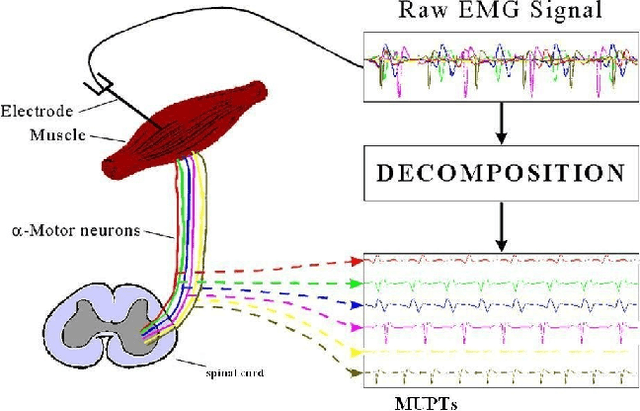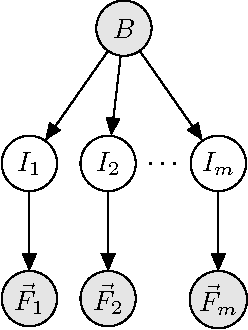Benn Smith
Generative Multiple-Instance Learning Models For Quantitative Electromyography
Sep 26, 2013



Abstract:We present a comprehensive study of the use of generative modeling approaches for Multiple-Instance Learning (MIL) problems. In MIL a learner receives training instances grouped together into bags with labels for the bags only (which might not be correct for the comprised instances). Our work was motivated by the task of facilitating the diagnosis of neuromuscular disorders using sets of motor unit potential trains (MUPTs) detected within a muscle which can be cast as a MIL problem. Our approach leads to a state-of-the-art solution to the problem of muscle classification. By introducing and analyzing generative models for MIL in a general framework and examining a variety of model structures and components, our work also serves as a methodological guide to modelling MIL tasks. We evaluate our proposed methods both on MUPT datasets and on the MUSK1 dataset, one of the most widely used benchmarks for MIL.
 Add to Chrome
Add to Chrome Add to Firefox
Add to Firefox Add to Edge
Add to Edge